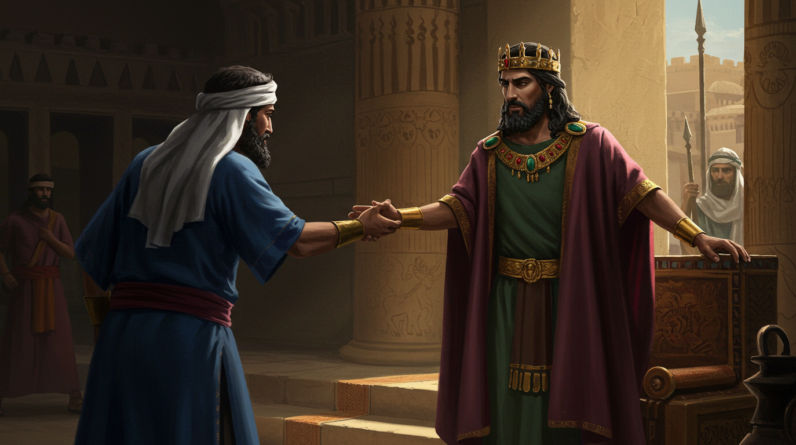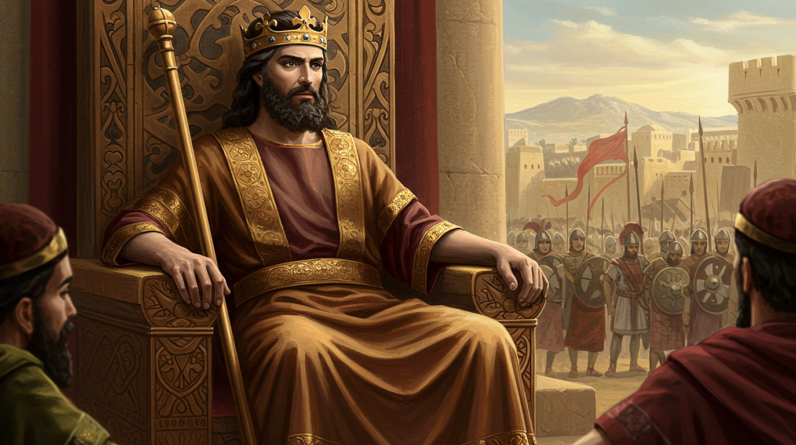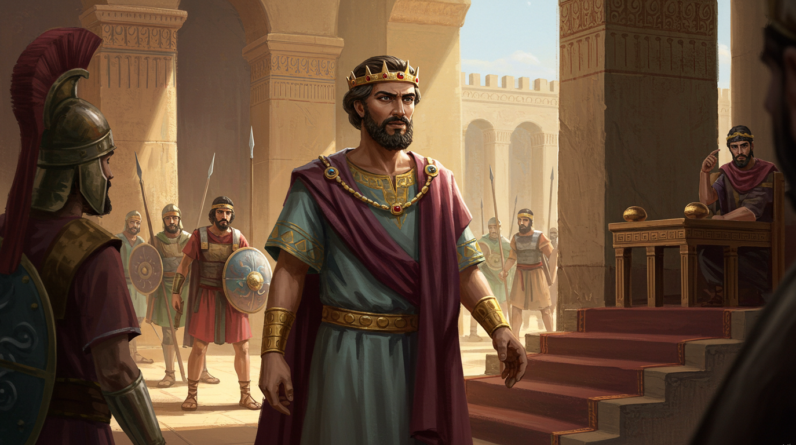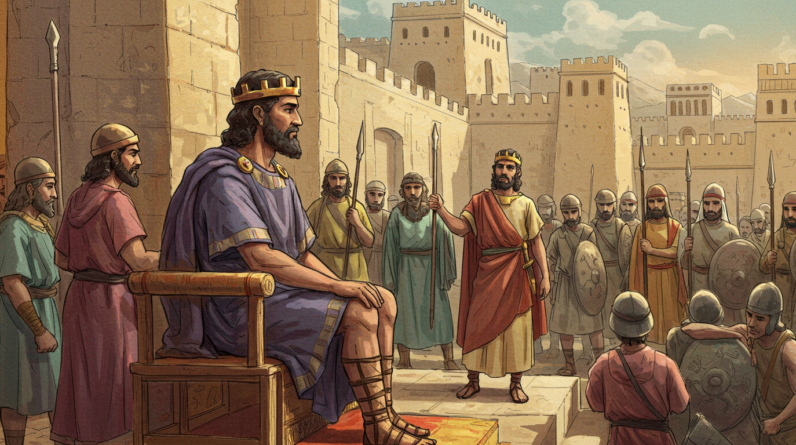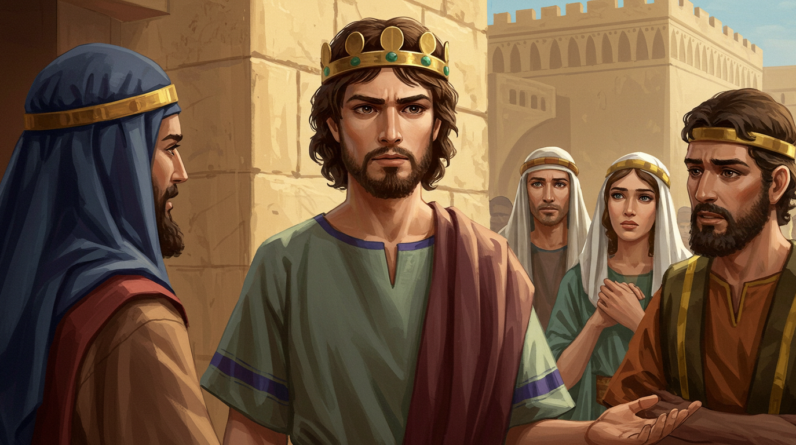The Curse of Jeroboam: Exploring How Idolatry Fragmented a Nation
Introduction
Hey there! Do you ever wonder how something as ancient as a story from the Bible can still resonate with us today? It’s fascinating how themes like leadership, faith, and division find parallels in modern life. Today, we’re delving into one such story—Jeroboam’s curse and the idolatry that led to his nation’s fragmentation. Trust me, this tale from the Bible is more than just an old legend; it’s a cautionary narrative that holds lessons for you and me.
📖 Key Verse or Passage:
“To guard this independence, Jeroboam erected two golden calves… He said to the people, ‘It is too much for you to go up to Jerusalem. Here are your gods, Israel, who brought you up out of Egypt.’” — 1 Kings 12:28
The Rise of Jeroboam
Jeroboam was a man who rose to power during a tumultuous time for Israel. Initially, you might see him as a relatable figure—a hard worker who found himself in the good graces of King Solomon. But when his ambition clashed with divine prophecy, things took a wild turn. You see, God had plans for Jeroboam, even before his uprising against Solomon’s son, Rehoboam. It’s interesting to speculate how easily the path of history could have changed if Jeroboam had trusted in that divine plan instead of leaning on his human instincts.
As you ponder Jeroboam’s early days, you’ll notice the charisma and leadership qualities that drew people to him. Yet, this same charisma led to his temptation for power, steering him away from faith and toward self-reliance. You can’t help but wonder how often we, too, are swayed by the allure of immediate solutions rather than trusting in the process.
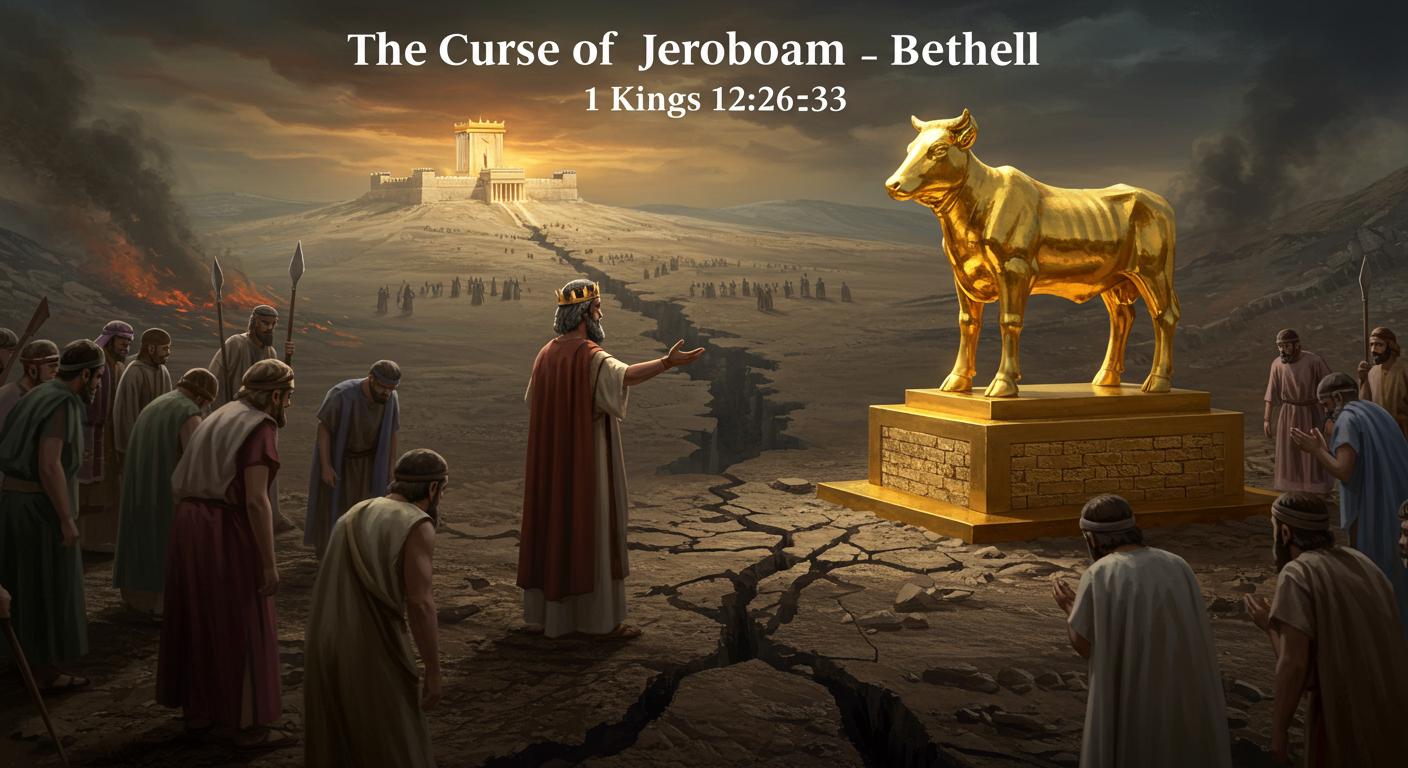
Idolatry: A Quick Fix?
Who doesn’t love a quick fix? Jeroboam sure did, and it turned into the fatal flaw that you’d find resonates even now. The kingdom was fragile, and instead of seeking divine guidance, Jeroboam created golden calves to worship, hoping to prevent his people from returning to the more established kingdom of Judah. These idols were more than just objects; they symbolized a breach in faith that led to devastating consequences. Think about it—when confronted with challenges, how often do we create our own ‘golden calves’ instead of approaching the issue with patience and understanding?
Jeroboam’s decision was like applying a band-aid to a deep wound. It may have seemed effective in the short term, but the long-term effects were catastrophic. By choosing idolatry, Jeroboam ensured that division would grow within the Israelite community, and this rift would not heal easily. We see this today in various forms, from politics to personal relationships, where convenient solutions only serve as temporary relief.
The Spread of Division
Once the seeds of idol worship were sown, the inevitable outcome was division. Each tribe of Israel began to drift apart, each following its own path rather than uniting under shared beliefs and values. This division was not just physical but deeply spiritual—a rift between the people of Israel and their covenant with God.
Can you imagine how confusing and destabilizing this must have been for ordinary Israelites? The community was fractured, and any form of unity dissolved under the weight of misled faith. It’s akin to looking at our communities today, where trust and shared understanding are often missing, primarily due to small decisions that are not rooted in collective good.
In examining this part of Jeroboam’s story, it’s clear that when leadership lacks moral direction, disunity follows. On a personal level, it’s a call to ensure that our choices, big or small, are aligned with our values—not just out of self-interest.
Lessons for Today
So, what can we glean from Jeroboam’s journey? When you distill it down, there are three major lessons that stand out:
- Trust in a Higher Plan: Jeroboam’s story underscores the importance of faith over quick fixes. When you face challenges, take a moment to consider long-term solutions rather than rushing into actions that give only fleeting relief.
- The Power of Leadership: Jeroboam’s choices remind us of the immense power leaders have to mold society. As individuals, whether in leadership roles or not, your actions have a ripple effect on those around you.
- Unity is Fragile: It’s evident from this tale how quickly division can take root. Prioritize communication and understanding in your community to prevent fragmentation.
Thinking about these points, it becomes clear that Jeroboam’s tale is more relevant than ever. It’s a narrative that reflects on not just the political realms but also personal choices that dictate unity or division in your everyday life.
Conclusion
Jeroboam’s story is an age-old lesson showing us how easy it is for greed and fear to overshadow faith and wisdom. It serves as a reminder to stay true to our values, emphasizing the belief in something greater than ourselves. Reflecting on this narrative invites us to evaluate our own lives and ensure that our actions lead to unity, not division.
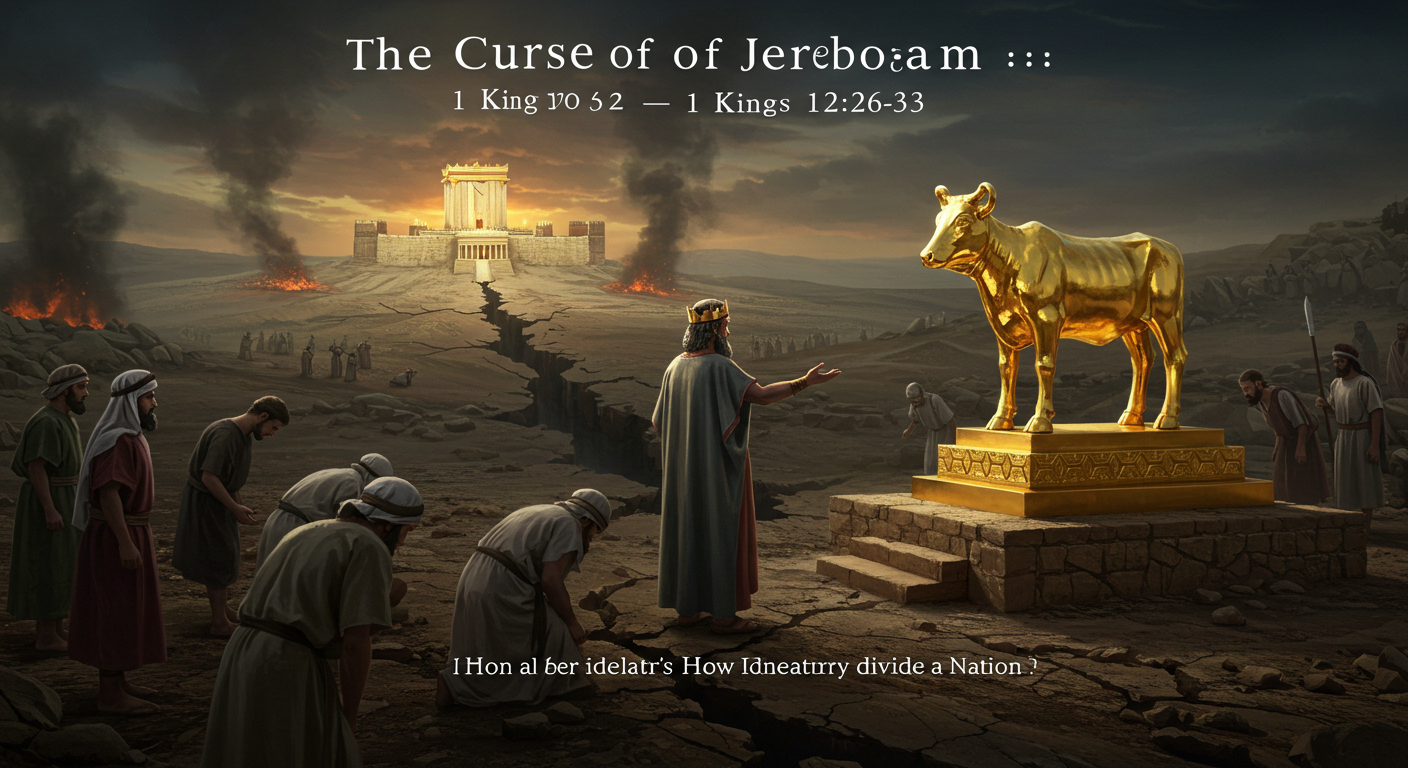
🔍 Explore More Bible Insights:
✅ 1. Serving God by Serving Others
Tone: Practical, inspirational, servant-hearted
🔹 “Live Out Your Faith with These Reads”
✅ 2. The Prayer of Jabez – 1 Chronicles 4:10
Tone: Encouraging, bold faith, personal growth
🔹 “Ask Boldly, Live Fully – Keep Reading”
✅ 3. The Promise of Eternal Life – 1 John 2:25
Tone: Reassuring, hope-filled, theological
🔹 “Secure in Christ – Explore More”
✅ 4. Lessons from the Battle of Jericho – Joshua 6
Tone: Obedience, victory through faith, historical insight
🔹 “Victory Through Faith – Read Next”
As a ClickBank Affiliate, I earn from qualifying purchases.
Acknowledgment: All Bible verses referenced in this article were accessed via Bible Gateway (or Bible Hub).
“Want to explore more? Check out our latest post on Why Jesus? and discover the life-changing truth of the Gospel!”




